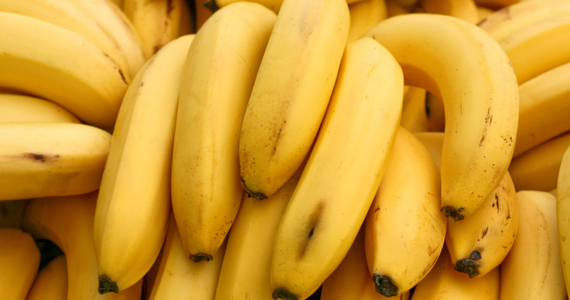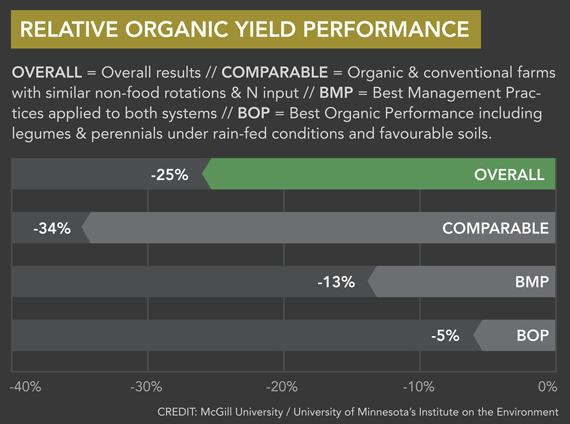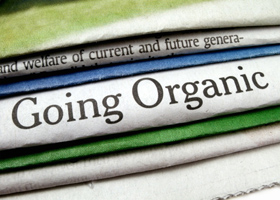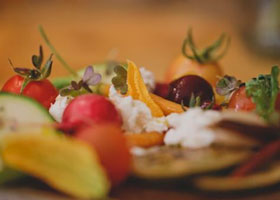
There’s nothing black and white about organic agriculture
Author | Verena Seufert
Food is an emotional topic. Everyone cares about what they eat. Food often has a strong cultural, religious or even political meaning attached to it. Organic food is no different in that respect.
People buy organic out of hedonistic values of pleasure and health as well as out of altruistic values of environmental sustainability, social justice and animal welfare.
In addition, organic food is also part of the political debate on how to feed the world sustainably today and into the future. Agriculture is currently one of the major threats to the environment. We know that some drastic changes in our food system are needed if we want to ensure that the many hungry people on this planet have access to sufficient nutritious food and at the same time reduce the environmental impact of agriculture.
Organic agriculture is often proposed as a solution to some of these challenges. It promises to produce food in a more environmentally friendly way and to provide accessible means of increasing yields in smallholder farming systems in developing countries.
We were therefore not surprised that our study about the yields of organic agriculture, published recently in Nature, drew quite some attention and was discussed widely in the media and blogosphere.
In this study, we conducted a meta-analysis comparing organic and conventional yields and examined how the yield difference is influenced by different site and system characteristics. The analysis basically showed that organic yields are generally lower than conventional yields, but that under some conditions organic yields can nearly match conventional.

The study’s results. Todd Reubold, Intitute on the Environment, University of Minnesota
While we anticipated that the study would receive widespread attention, we were not really prepared for the wide range of interpretations of our analysis. Some people interpreted the study to imply that organic food was bad for the environment. Others concluded that we had totally missed the point, as the issue was not about yields anyway.
So, first a disclaimer: we did not attempt to solve the food problems of the world in our study. We evaluated the yield difference between organic and conventional systems using data that had been published in the scientific literature. Not more, not less.
We looked at the yield question, as we believe that yields are an important variable to consider when assessing different farming systems. In the end, whatever you might hold against current conventional agriculture, we have to acknowledge that its high yields have spared land for nature and have improved the food situation of many people.
But we acknowledge (and we do that throughout our article) that yields are only one of many factors we need to consider. Farming systems do not only have to provide food but they also have to use natural resources responsibly and to provide livelihoods to farmers. And the question of feeding the world is even more complicated than that. Feeding the world today does not depend on the total food produced: at the global aggregate scale we currently have enough food to feed everyone. It depends on where this food is produced and at what price. Hunger today is a problem of insufficient access to nutritious food and not of insufficient food availability (although feeding an additional 2-3 billion in the future may require increases in production).
So what message can people take away from our study?
The real conclusion of our study is not an easy conclusion of “yes organic” or “no organic”. Although we did mention the overall average yield difference between organic and conventional systems derived from our data, this was not the main point of our study.
Our main contribution was to identify situations where organic performs well and also those situations where there is still a large yield gap to conventional systems. Instead of giving an absolute yes or no answer, we tried to paint a more nuanced picture of the complex and difficult reality of organic farming.
Our study has shown that organic agriculture requires good management practices for high yield performance; that organic performs better under rainfed conditions and weakly acidic to alkaline soils; and that its performance improves over time.
The study has also shown that nitrogen limitation is an issue in organic systems and that we need to improve organic cereal and vegetable management. Here we have two choices. We can improve organic yields by putting more money into organic research (given the little funding organic research has received to date). Or we can turn to conventional practices, which under these conditions may be more environmentally beneficial because of their land sparing effect.
An important knowledge gap we identified is the performance of organic agriculture in smallholder farming systems in developing countries. These are the places where yield increases are most needed and where organic agriculture could potentially provide an important tool for sustainable intensification of farming. Research in these systems is urgently needed.
Organic agriculture has a role to play in sustainable food production.
We can adopt organic farming methods under conditions where it performs best, try to address the identified issues in organic farming systems and we can learn from successful organic practices for conventional systems. In the end, to achieve sustainable food systems we need agriculture that can deliver certain desirable outcomes. And these desirable outcomes might require a blend of different practices, including agro-ecological methods that improve soil fertility and enhance biodiversity as well as targeted use of chemical fertilisers to ensure high crop production.
We hope that with our study we have revealed some of the many shades of grey inherent in the debate about how to feed the world sustainably. Science cannot provide a definite answer on what the best farming system is. But it is not about the correct answer or the correct choice anyway. It is about making the best choice with the information we have. And making these best choices in our complex world requires us to critically evaluate the performance of different farming systems along certain key variables, assessing the associated uncertainties and identifying knowledge gaps.
The same is true from a consumer perspective. Instead of sticking to any single mantra and eating only organic food, only local or only vegetarian, we should do what we do anyway: eat from a diversity of sources following our diverse set of values and trying to do the best with the information we have. This might include buying organic milk from large-scale organic dairy farms to avoid antibiotic residues. It might mean buying conventional apples from a local family farm in support of the local economy. It might mean buying cheap flour from highly productive conventional cereal farmers. Or it might include the organic veggie basket from our local family farm with its diverse polyculture of vegetables produced with utmost care and a large portion of idealism.
![]()
Verena Seufert is a PhD Student at McGill University. This article was originally published in The Conversation.





